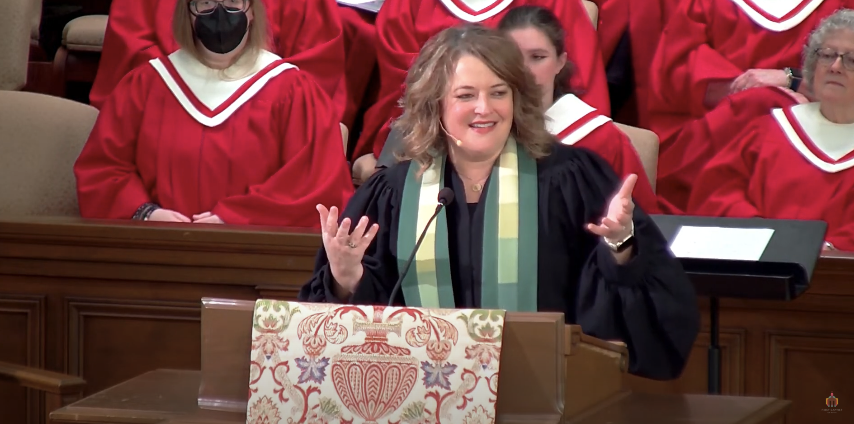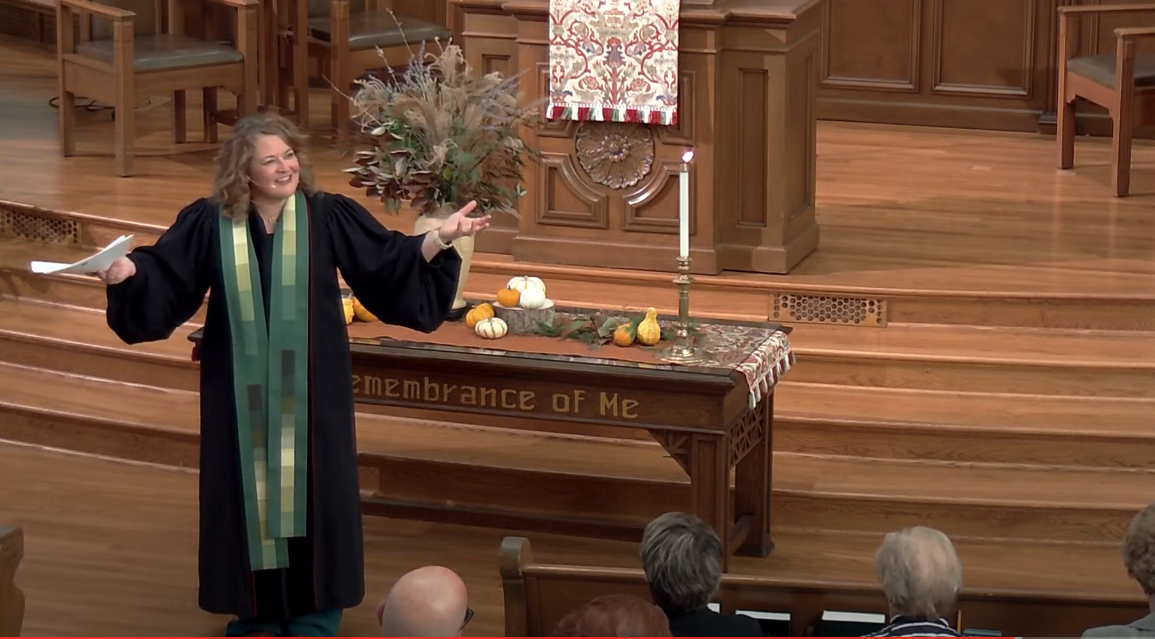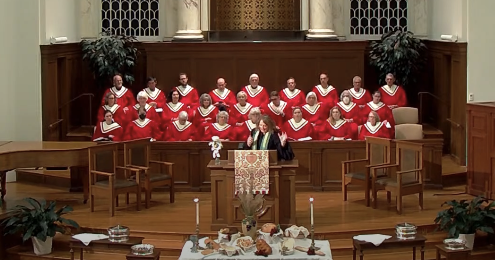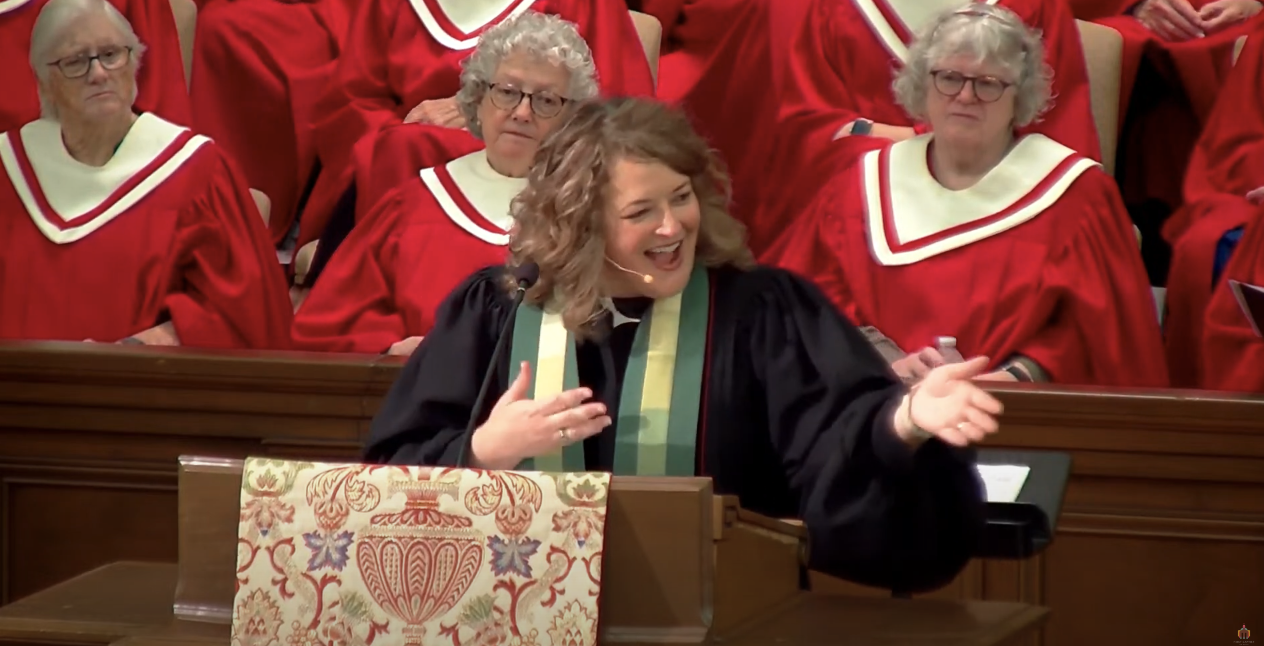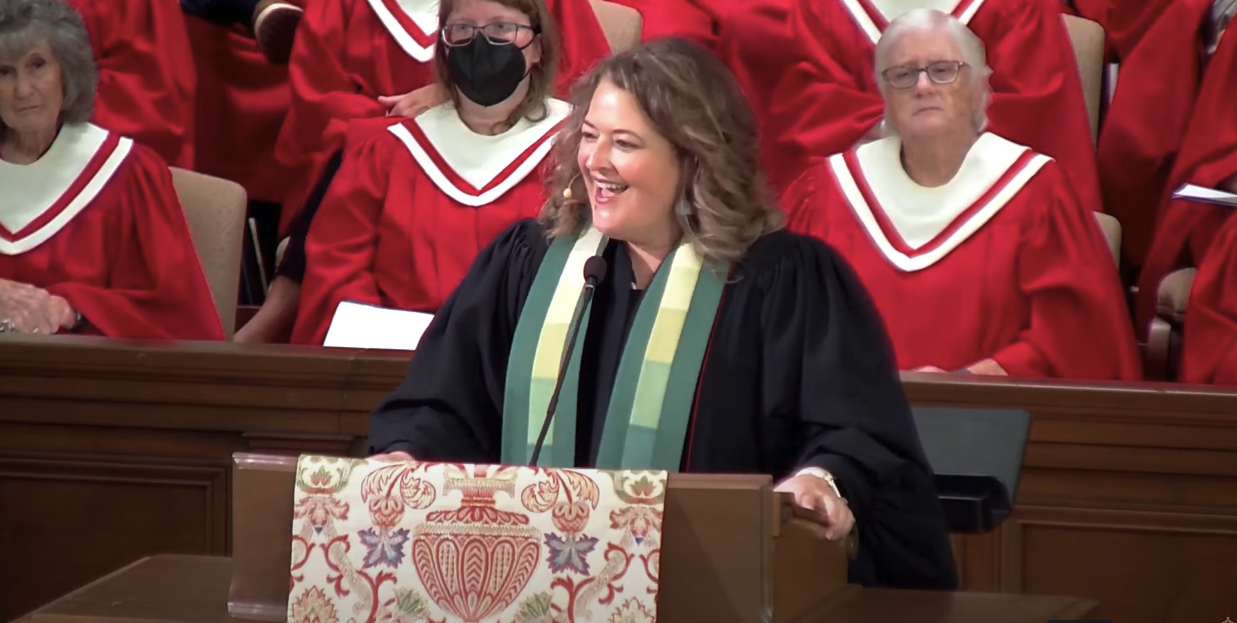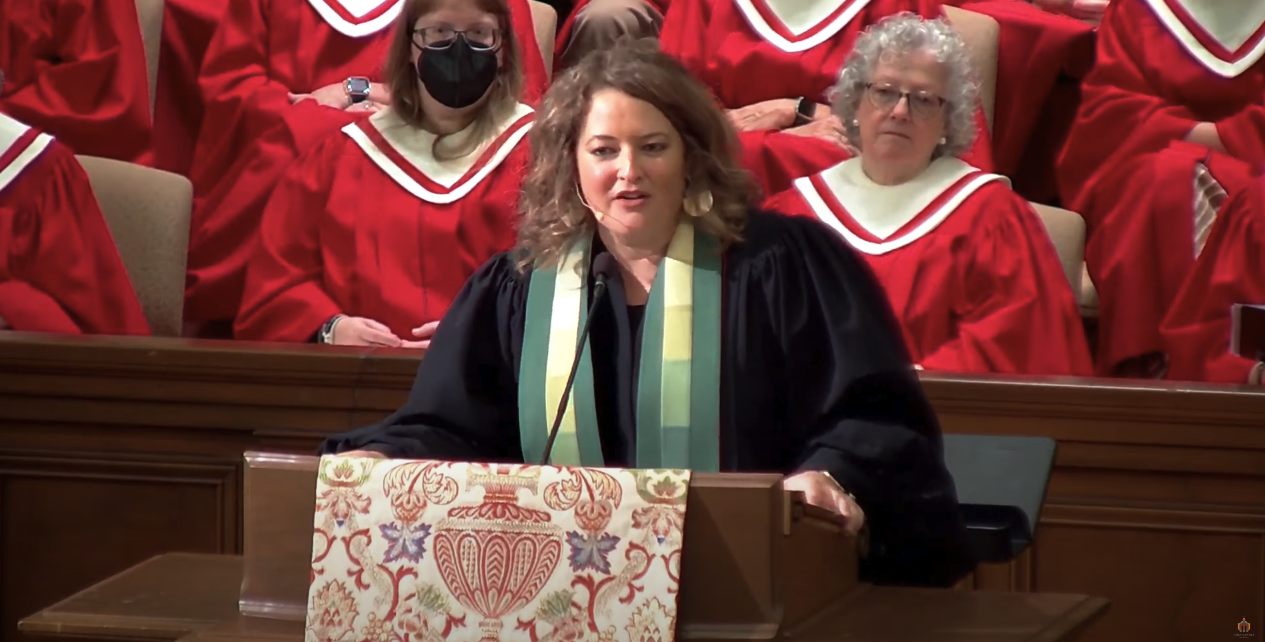I.Yesterday afternoon, my family had a spirited round of conversations on our back porch. We were in the midst of a day-long basketball tournament for Liam, and had a brief break to run home for a turkey sandwich. Liam, you see, is all in on basketball. He talks about basketball, and watches basketball, and dresses like NBA players, and on and on. You get the picture.
But yesterday, Josh had noticed in his first game that Liam was struggling a bit. It was a father’s intuition to look to his oldest son and realize that Liam seemed to be in his head during the game. He’d missed a few rebounds and seemed slow to respond to passes. As Josh surmised, it was almost like he was still rehearsing in his head the moves he’d learned from practice and feeling hesitant to put them into action on the court. “You gotta want to play, man!,” Josh said to him, and Liam nodded knowingly. “Basketball isn’t just about the practice, and training, and gear, and pre-game rituals, and famous players, and plays, and the shoes, as important as all of these are. Your experience is incomplete if when you get on the court to play, you miss the chance to really play!”
Call it an occupational hazard, but as I heard this wisdom shared, Josh may well have said, “be doers of the word, and not merely hearers only.”
II.We learned last week that the scripture writer James shares this strong perspective about the doing of one’s faith, not merely the hearing of it. You see, to James, faith is incomplete without action. Learning, and believing, and trusting, and hoping in Jesus all matters very deeply, but your experience of faith is incomplete if when you get on the basketball court of life to play, so to speak, you miss the chance to really play, to live it out. To do love, not just hear it. And to James, should you enact your faith only partially – extending mercy to just a few neighbors and not all, loving just your friends not your enemies, feeding the hungry you like or visiting the prisoners you can tolerate and not all or welcoming the poor who are well-behaved – you commit sin, he says. You fail to uphold the law. You transgress. And to make that fine point even finer, he says this: “so faith, by itself, if it has no works, is dead.” Indeed, in exploring this text, the late theologian John Calvin once said this: “God bids us love our neighbours, not certain selected persons… love of neighbors means love of all neighbors.” To love just a few is not really to love at all.”
Sometimes scripture causes you to examine your faith’s commitments to action from the inside out. And other times, from the outside in. Sometimes you have to be nudged into action; and other times, Jesus invites himself over to your house and you can’t avoid it. That’s what happens in today’s gospel text with wee little Zacchaeus. We know the story, right?
Jesus and his disciples are on their way to Jerusalem near the end of Jesus’s life and stop for a stay in Jericho, the last major city before Jerusalem. On the way, Jesus predicts his passion. He heals a blind beggar. They enter Jericho to find crowds pressing in around Jesus, curious about this healer and prophet and wanting more, ever more. But the local tax collector – chief tax collector, to be precise, Zaccheus, was curious and eager to see Jesus too. The crowds were such that he couldn’t see – he’d never hit that final growth spurt his doctor claimed, and had to get crafty. Over there, he spotted a sycamore tree and shimmied all the way up so he could spot Jesus in the crowd. But Jesus wasn’t tucked away amidst the throngs, rather he was standing just below him and hollered, “Zacchaeus, hurry up and come down, for I need to stay at your house today!”
You have to wonder what thoughts flew through Zacchaeus’s mind in that moment. Did I leave dishes in the sink? Will he judge my large collection of items? Will he know if I just take him to someone else’s house instead? History doesn’t tell us what Zacchaeus thought, only what he did. He ignored the grumbling of all the crowds who wondered why Jesus was eating with such an obvious sinner. He happily led Jesus to his home and heart. He offered half his possessions to the poor, and reparations to those he defrauded. Indeed, he found transformation by way of the Son of God.
III. What links this story of Zacchaeus with the directive from James to action, you might wonder? I daresay today that the thing that links them is hospitality.
Now let me ask – what do you think of when you think of “hospitality?” Perhaps your mind goes to the hospitality industry: the hotels and restaurants and bars and entertainment venues that form it. Perhaps you think a bit more locally, and draw to mind this past summer’s supper clubs, or our church’s greeter teams and signs outside, or even our church’s wonderful Hospitality Ministry Team, and the incredible meals, coffees, table designs, and warmth they provide to our gatherings. Maybe you think of tea parties or front porch visits, fine china or interesting table conversations.
But hospitality to Christians and churches is more than just providing a warm meal, or welcoming in someone new, as important as these practices are. Because extending hospitality in our welcome means putting our faith into action. Doing the word, not just hearing it. Playing the game, not just practicing it. Loving our neighbors, and loving all of them. Treating anyone who comes in as if they might be Jesus himself.
The long history of Christian hospitality would suggest that certain practices of Christian hospitality are necessary: sharing a meal, welcoming a stranger, providing warmth and care, being considerate as though we’ve thought about our neighbors’ needs. All the more potent when the one you’re welcoming lives on the margins. But vulnerability on the part of the one extending hospitality AND the one receiving hospitality are when transformation is possible. South African theologian Allan Boesak wrote that “the pinnacle of lovelessness is not our unwillingness to be a neighbor to someone, but our unwillingness to allow them to be neighbor to us.” In her book, Making Room: Recovering Hospitality as a Christian Tradition, Christine Pohl once said, “communities in which hospitality is a vibrant practice tap into deep human longings to belong, find a place to share one’s gifts, and be valued. The practice of hospitality reflects a willingness on the part of a community of people to be open to others and to their insights, needs, and contributions. Hospitable communities recognize that they are incomplete without other folks, but also that they have a ‘treasure’ to share with them.”
Hospitality is so ordinary, it almost seems obvious. If as Christians, we believe that all bear the image of God, then our actions toward other humans must reflect that. Theologian Arthur Sutherland says, “Hospitality is the practice by which the church stands or falls. God calls us to hospitality,” he says, because, “God’s goal for all creation is a kind of homecoming: a welcoming and a receiving.” Hospitality becomes ground zero for putting our faith into action, the space where Jesus pulls us out of our trees, and plants our feet on the ground, and insists on coming over in the form of an unhoused neighbor, a grieving senior, a wounded atheist, an immigrant family.
IV.Surely this should be the bread and butter work of the church, right? Particularly churches in the South who are filled with folks that welcome you into their homes with a “hello” and a “can I get you a piece of pie?” Surely when churches say, “all are welcome,” they mean, “we’re practicing hospitality here – we really mean it when we say that all are welcome!”
Yet you and I both know that too often churches are the very places where hospitality is an afterthought rather than a priority. “All are welcome,” some churches say, “but mostly the families with young children.” “All are welcome,” churches say, when they mean, “all are welcome to show up for worship or come to this church event, but don’t you dare try to change who we are, or what we believe, or how we exist. Don’t come in here with whatever deviates from our majority – whether it’s our majority political view, or gender expression, or racial identity, or economic status – don’t come in here and by showing up, ask us to do things differently!” Attempts at hospitality – for churches and individuals – become struggles with risk and experiments in partiality.
Of course, churches wonder about the risk. The complications. The times it won’t go well. What if we do it wrong?, we ask. What if our hospitality doesn’t work? What if my house or our church house isn’t as nice as it should be to invite people in? What if I welcome people and then accidentally offend them without meaning to? What if we run out of food, or money, or energy? What if the stranger I welcome is dangerous? What if we get taken advantage of?
Beyond the risk, then we feel the temptation of partiality. Perhaps never was this clearer to me than several years ago, before we had a wonderful communications team on our staff, I was purchasing a series of social media advertisements for our Holy Week and Easter services. If you’ve never done this before, let me tell you what you can expect. Once you’ve entered in your information about the event – uploading pictures and adding website links and everything –Facebook and Instagram give you a series of ways you can target this ad to show up in particular people’s newsfeeds. Some of it makes sense of course, like targeting people who live within our local area. But then it gets a bit … well … squishy. Want to reach 18-35 year-olds? How about educated folks, or wealthy folks, or folks with interesting hobbies? Oooh now that’s interesting! I remember feeling my finger twitch a bit. What if I targeted this ad toward people who vote like me, or watch the same shows on Netflix as me, or are interested in the same authors as me? What about looking for a slew of 40-something moms who love Aretha Franklin and the Indigo Girls and Tennessee football and hiking and hot yoga and Subarus and screened-in porches and dogs and traveling and self-improvement books and Southern food and peaches? I mean, not sure who would want that, but let me tell you that social media makes that possible. With just a few clicks, I could target our message for precisely the community I wanted. I could be well on my way toward socially engineering a church like me. Heaven help us.
Perhaps some of you here today remember the Anesi Report. Commissioned by the church a dozen or so years ago, this report was to survey our downtown neighbors and gather their perspective about who they perceived the church to be. And wouldn’t you know it, some of our downtown neighbors thought this church to be big. Cold. Fortress-like. Rich. Unwelcoming. Unengaged. A lovely space to walk past, but never one in which to stop and stay.
To their tremendous credit, to your tremendous credit, church leaders and pastors took that report and did something with it. They didn’t question their neighbors’ motives or dismiss them as people who just don’t get it. Members of First Baptist on Fifth opened their doors to their unhoused neighbors – and created quite a stir when offering shelter in our gym. They – you – packed bags of food for hungry kids, and hosted community events, and began to wonder, is there a chance that these buildings may be part of the problem? So when the time came to consider deeply the footprint this church had made in the community, you took the courageous path, opened your hands, and let go of long-loved spaces. You articulated a broader welcome when the Holy Spirit nudged us in that way. You showed up more regularly where our neighbors were. You made those Facebook Easter ads wide open – no hand-selected members allowed.
And now, our Building Project Task Force has proposed a project that centers our expression of and commitment to hospitality in our space – not just in our people – as one of the four tent poles upon which we stand. You’ve heard the list – new signage around the property to assist guests and members as they move through the space. New security cameras and stations to increase safety while at the church house. New first floor flooring, and a new playground for our youngest members and friends. New outdoor pavilion to share meals, worship together, and enjoy our neighbors. A finished prep kitchen so maybe we can offer fresh pie to our visitors. Doers of the word, you are, dear church.
V.But what we’re doing together – this isn’t new. This commitment to hospitality is at the core of who First Baptist Church on Fifth feels called by God to be and do in this world. It’s who we are. It’s who you are. And that’s what makes stories like these possible:
On the morning that everything changed, she thought only of getting to church. She knew that here, she’d find sympathetic ears. A warm embrace. A home where this unexpected shame has no place. Dignity and care. People who see her and know her and love her. She showed up, face blotchy from crying, unsure of what even the next ten minutes would hold. “I didn’t know what to do, so I just came here,” she told me. Throughout that day, she shared in conversation with a half a dozen friends. She drank cold water; she ate a warm meal. She had space to make phone calls. She found a comfortable place to sit and rest. She was around people who knew not to ask, but only to welcome, to protect, to love. And when the afternoon sun started grazing through the windows, she finally felt strong enough to head home. Many more empty days would follow, and when the quiet became oppressive, she came to church.
Church is for hospitality, you see.
On the day he got out of prison, he came to this church house. He remembered how we’d helped him in the before times – the bag of food here, the rent assistance there, the honest prayers and open worship. He had written his life story while in prison, and wanted me to read it, to understand that his life meant more than his sentence, more than the string of felonies now on his record. “When I was eight years old,” he scrawled on the ripped-out notebook paper, “I stood holding my dad’s hand and watched my mom get shot and killed.”
Church is for hospitality, you see.
You called when the diagnosis came. You stopped by when you were lonely and needed to talk. You wandered in these doors, deeply suspicious, with every shield at your disposal up and ready. You found your pew here when the unthinkable happened to the church you thought you knew there. You rang the bell when you were hungry and hoped we’d be a church willing to see Jesus in you. You lingered so that you could finally say out loud to a trusted pastor what had been rattling around in your head and heart for ages: “I’m considering a divorce;” “Grief has engulfed me, and I’m afraid for my safety;” “I need to tell you what I’ve never told anyone before;” “I think I want to be a pastor.”
Church is for hospitality. You see.
My former pastor likened the church to a hospital, a place not where the healthy come to get stronger, but where the hurting come to find healing. The church is a school, he’d say, where everyone learns. The church is for hospitality. So friends, how will these new places and spaces and tools for hospitality help us further our commitment and put our faith into action for people? How will you live your lives for hospitality’s sake?
VI.Let me end today with the lyrics from singer Kate Campbell’s song called, Would They Love Him Down in Shreveport?
If they saw him ridin’ in
Long hair flyin’ in the wind
Would they love him down in Shreveport today?
If they heard he was a Jew
And a Palestinian too
Would they love him down in Nashville today?
If they saw him talk with ease
To the junkies, whores and thieves
Would they love him out in Wichita today?
And would the rich men think it funny?
If he said, “Give up your money”
Would they love him up on Wall Street today?
And if he made the wine from water
Gave it to their sons and daughters
What would the folks in Salt Lake City say?
If he talked of brotherhood
As he walked their neighborhoods
Would they love him up in Boston today?
If he said, “Love those who use you
And forgive those who abuse you”
If he turned the other cheek what would you say?
Would you laugh and call him crazy
And send him on his way?
If he walked right into your town today
Would you laugh and call him crazy
And send him on his way?
If he walked right into your town today


